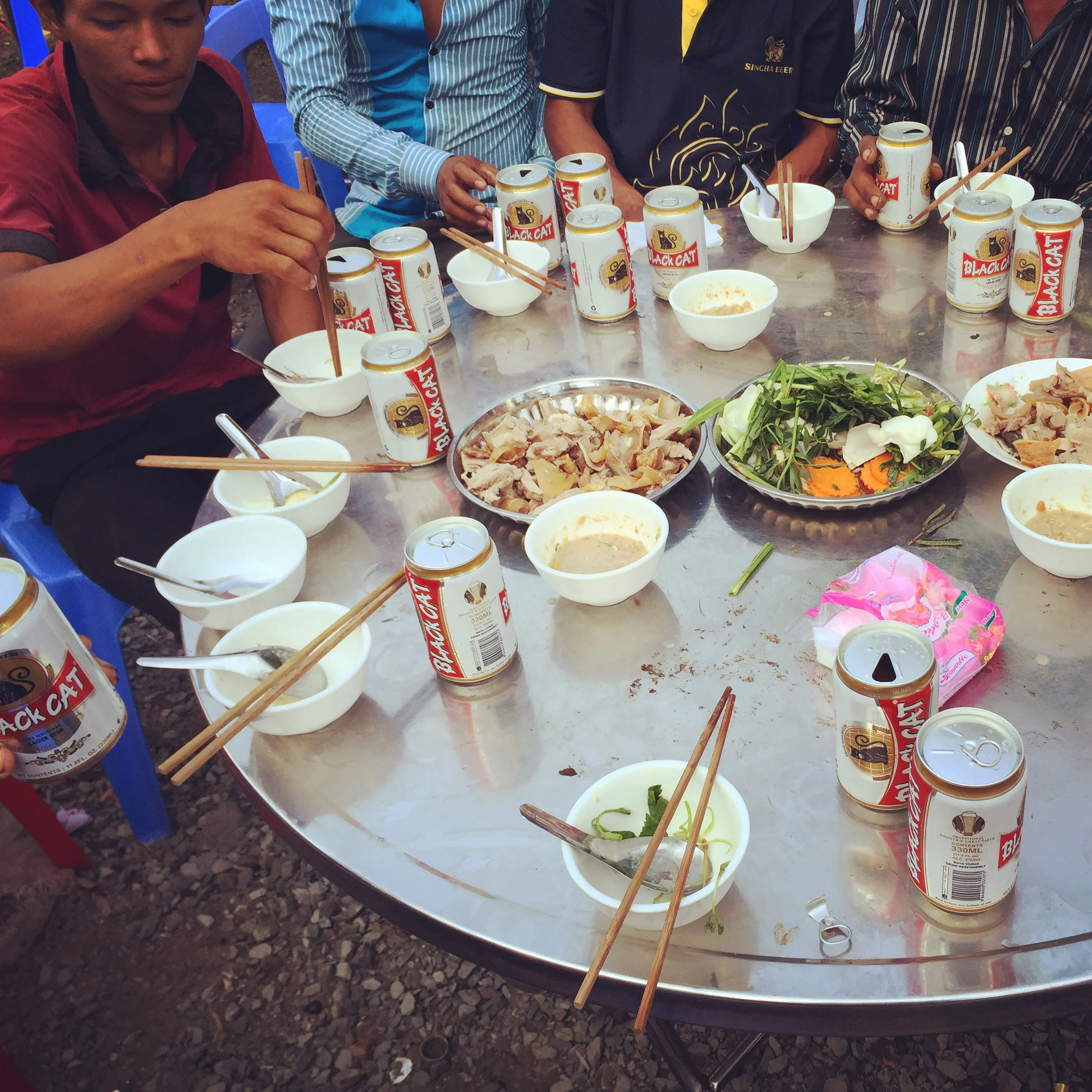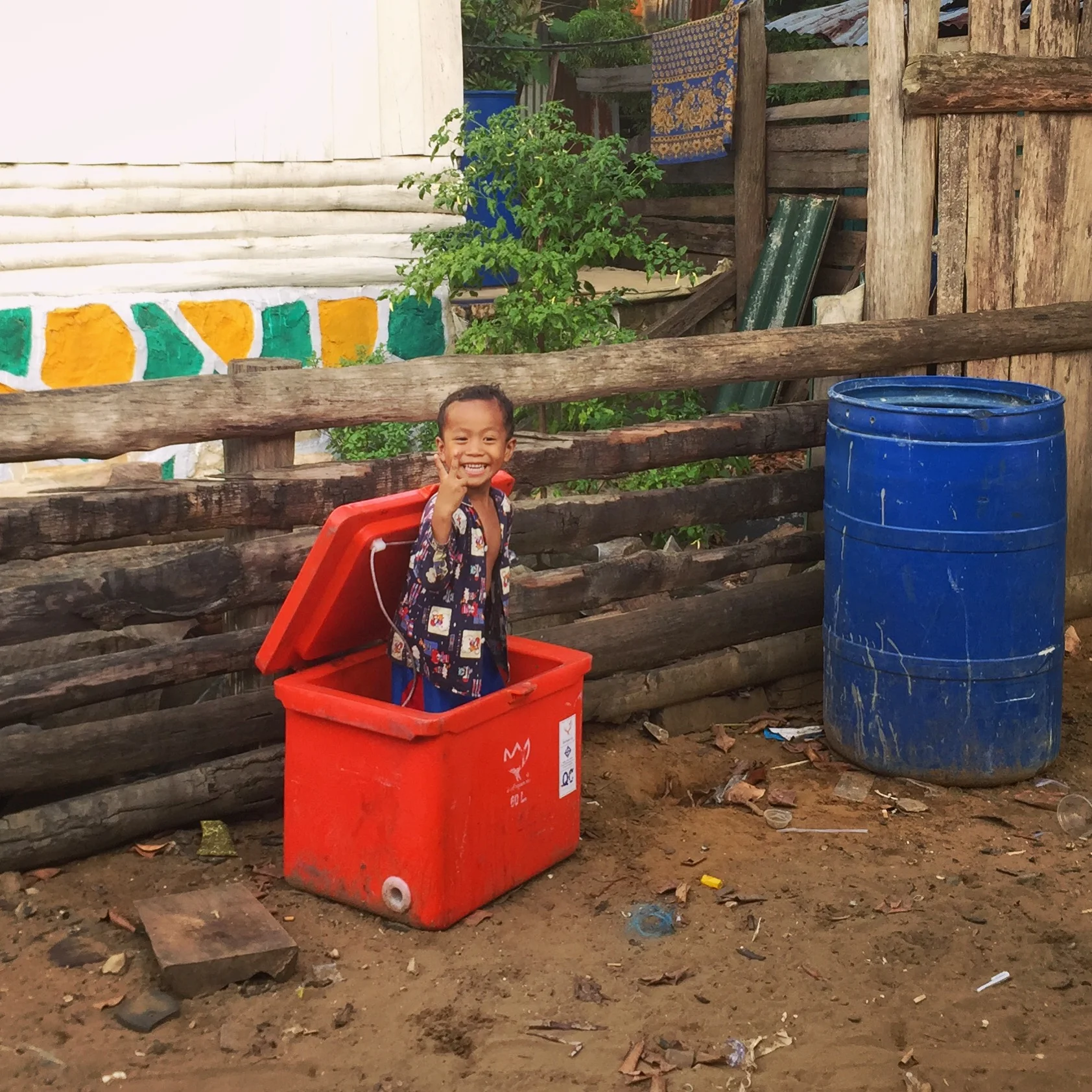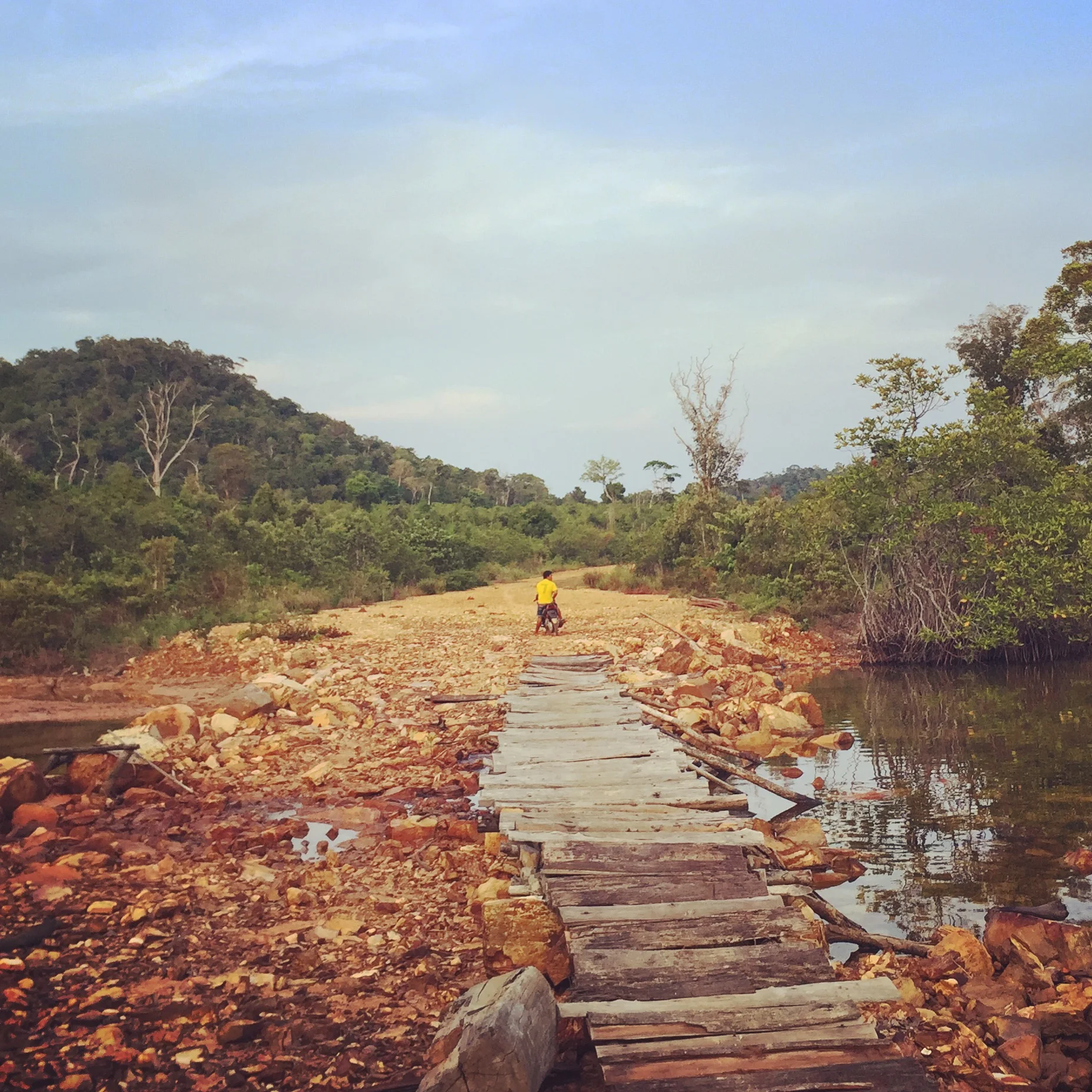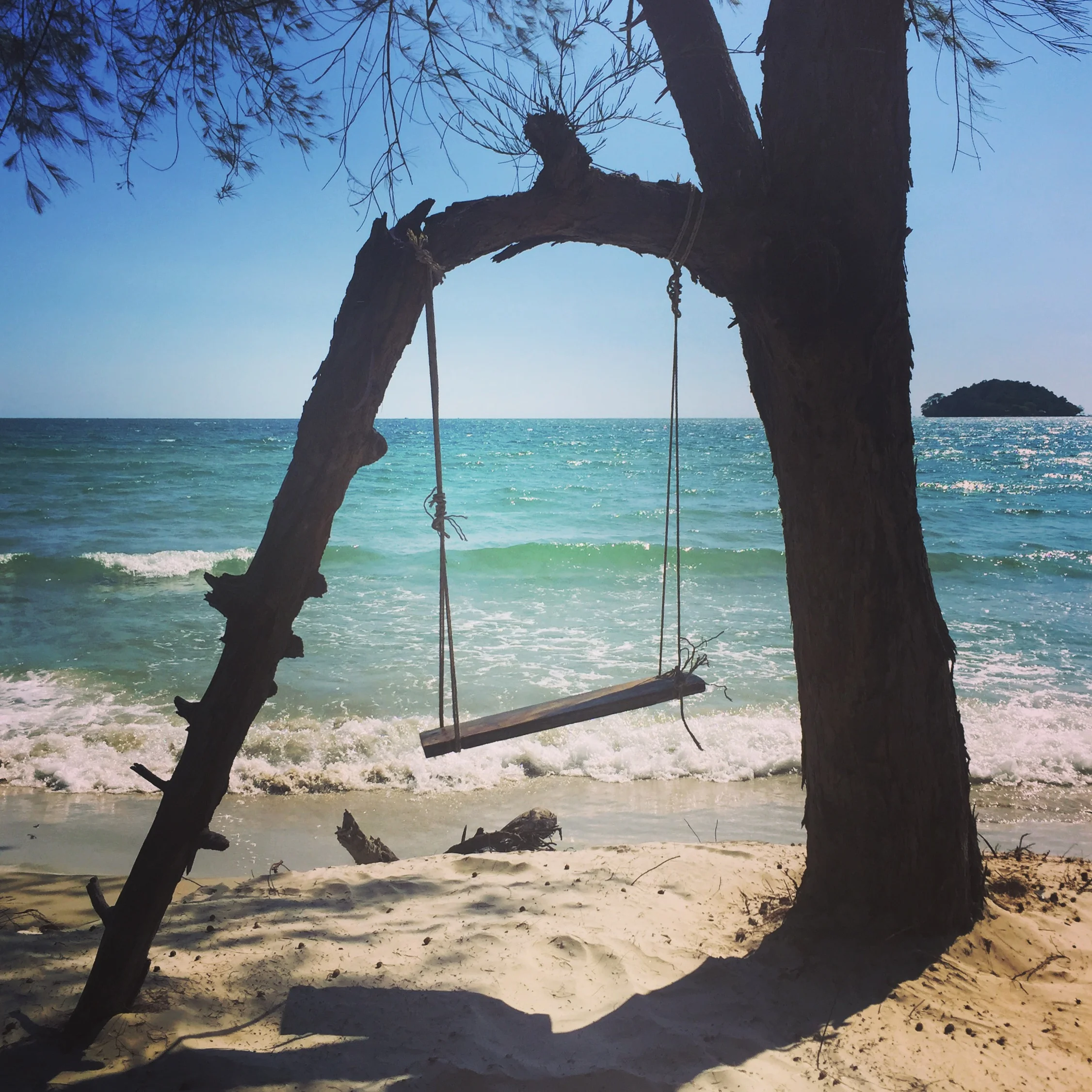So. Generally speaking, I've had apretty good time in this dusty, hot country known as Cambodia. I can't say that I loved Cambodia beyond comprehension, but I did learn to appreciate and quite like Cambodia. It's a pretty laidback place, the people are nice and friendly (but not overly so), I've loved the beaches and the seaside towns of Kampot and Kep, and am glad I braved the heat to take in Angor Wat.
The main annoyance I've encountered is the feeling of being ripped off a fair amount, mainly by tuk tuk drivers and food vendors. This makes being here feel a bit like a hassle, like you're a ripe mark just because you're clearly a Westerner. While negotiating for a tuk tuk in Kep, the driver wanted $3, which was more than the $2 I'd been spending in Kampot to drive a much greater distance. When I mentioned that, his friend chimed in, "Cambodia is a very poor country." Yeah, true, I get it. It is a poor country. But there's also that sense that you're being taken for a ride (literally) and that somehow because you're foreign it's OK to try to milk you for all they can. And yes, I get it, poverty spurns people on to hustle (which ultimately I admire, better than sitting around drinking and asking for spare change, à la San Francisco), but it makes it hard to warm up to a country where you feel like you're viewed as a walking ATM. When I tried to buy a tiny bag of potato chips near the old French Casino in Bokor National Park, I asked a kid working the stand how much they were and he said 3,000 riel ($.75). His dad immediately interruped to say, no, 5,000 riel ($1.25). Sure, it's only $.50 difference but a bag of potato chips that small is about a $1 in the U.S.! You want to be like "C'mon, this isn't NORWAY, you guys! It's a teeny tiny bag of crappy potato chips!" Instead of saying that though, I just gave up and walked away (this is right after watching a four-year-old take a final glug of water from a water bottle and chuck it on the ground).
Which brings me to my next observation: there's a lot of litter in Cambodia and a lot of active littering. On the boat back from Koh Rong, I watched a guy take his last sip of iced coffee and fling the empty container overboard. Driving down the road I saw a guy on top of a truck toss his empty water bottle into the air. Basically it seems like the entire country is just throwing their trash (and especially plastic water bottles) on to the ground (or into the ocean). Since there doesn't seem to be any cohesive refuse system, presumably eventually the litter is collected and burned (yay, burning plastic bottles) but there's tons of it lying around, clogging up little pools of water, in trenches near people's homes, on the mountainside in Bokor. And again, I get it -- it's a developing nation, and a poor country at that. But I hope for the sake of our earth, a different mentality can take hold where this kind of widespread, egregious pollution comes to an end. It's hard to see, especially when you realize there aren't a lot of alternatives. After all, it's not like clean drinking water is available from the tap -- so instead, huge volumes of bottled water are being used, for drinking, bathing, etc. A very sad and concerning thing to observe.
Another concerning tidbit I learned is that while Cambodia ranks as one of the poorest countries in the world, it also is one of the countries that receives that highest amount of aid in the form of government money (for charity as well as infrastructure projects) , NGOs, charities, and so on. But in talking with one expat who'd lived here for 5 or 6 years, she mentioned that in fact there are many wealthy people in Cambodia. But the attitude of those who are wealthy is to not bestow their money on building up the country -- they'd rather remain a poor country and rely on the foreign investment and aid money to do things like build roads and provide wells for the water. I found this an intriguing piece of information, especially given Cambodia's history with its quite failed venture into communism. While you might not agree with communism/socialism's end conclusions about how to redistribute wealth or build a nation, the one insight that is very real is the observation that the wealthy tend to hoard their money and use it to primarily serve their own interests. Today, walking through my hotel neighborhood in Phnom Penh, I passed numerous giant, flashy mansions with high gates and security guards waiting out front; I'm not making any argument for socialism here, but I will say I hope Cambodia can find a way from history repeating itself, for when you have a tiny minority controlling the wealth and power and a enormous population left to languish in poverty (and essentially ignored), you have a recipe for disaster. It might sound naïve and crazy, but what Cambodia needs is a Rockefeller or a Ford or even a Bill Gates -- it needs wealthy patrons who see investing in their own country as as indirect way of protecting their own interests, as opposed to looking to foreign investment from China, Korea, India, the U.S., and a host of other countries, to build roads and bridges and factories for them. (I'm no foreign policy or global economist here, please be gentle with me if I have completely missed the mark on something!)
All things considered, after a tour of the Killing Fields and Genocide Museum, ultimately Cambodia is impressive for its ability to perserve and rally after dealing with some very recent horror. And after arriving in Vietnam and finding the country so civilized, in a way, I do kind of miss the "wild west" feel to Cambodia -- that it's a bit rough and tumble, a bit unruly, and can have a lot of hassle, there's something inherently fun and freeing to be in a place where you have to just kick back and go with the flow.
Not sure when I'll be back, Cambodia, but thanks for the hot, fun, sweaty, eye-opening, sweltering, wild times.





